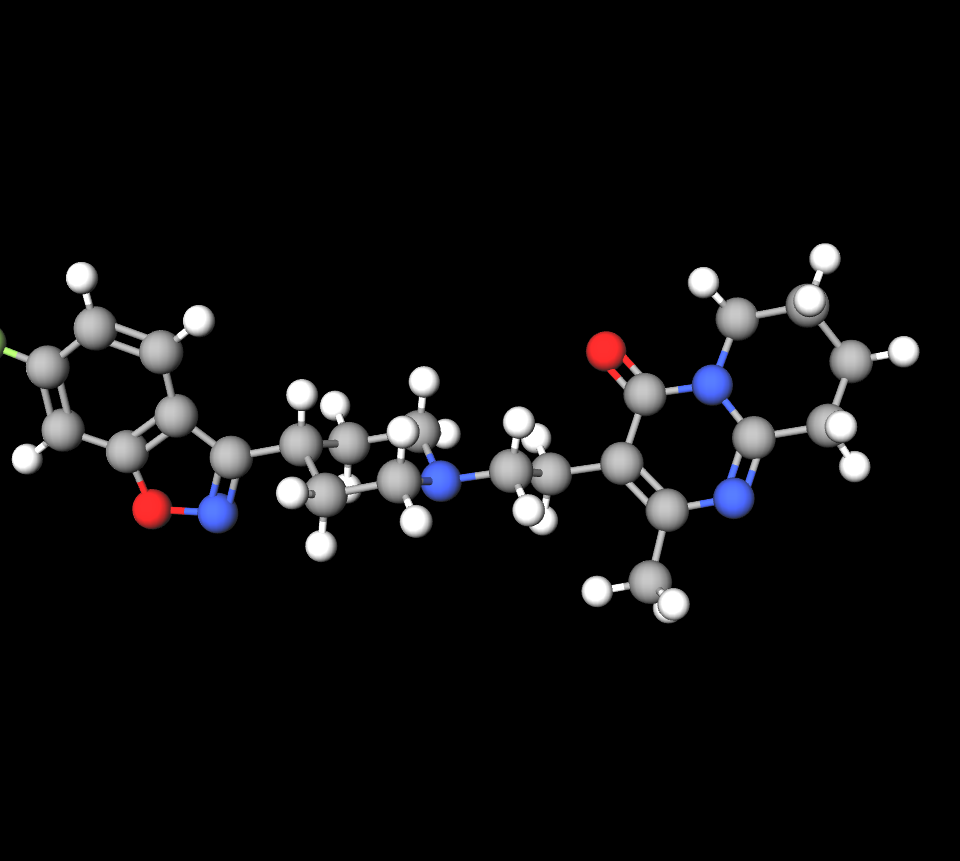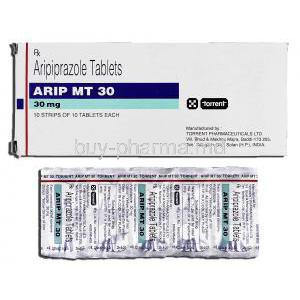Risperdal Consta Injection Ampule
- I. Introduction to Risperdal Consta Injection Ampule
- II. What is Risperdal Consta Injection Ampule?
- III. Medical Uses of Risperdal Consta Injection Ampule
- IV. Off-Label Uses of Risperdal Consta Injection Ampule
- V. How Risperdal Consta Injection Ampule Works
- VI. Dosage and Administration of Risperdal Consta Injection Ampule
- VII. Composition of Risperdal Consta Injection Ampule
- VIII. Storage Requirements for Risperdal Consta Injection Ampule
- IX. Drug Interactions with Risperdal Consta Injection Ampule
- X. Side Effects of Risperdal Consta Injection Ampule
- XI. Warnings and Precautions
- XII. Contraindications for Risperdal Consta Injection Ampule
- XIII. Careful Administration of Risperdal Consta Injection Ampule
- XIV. Precautions for Administration to Elderly Patients
- XV. Administration to Pregnant Women and Nursing Mothers
- XVI. Administration to Children
- XVII. Overdose of Risperdal Consta Injection Ampule
- XIII. Handling Precautions for Risperdal Consta Injection Ampule
- XIX. Conclusion
I. Introduction to Risperdal Consta Injection Ampule
Risperdal Consta is a medication used primarily in the management of various psychiatric disorders. Its long-acting injectable formulation provides a significant advantage over traditional oral medications, allowing for consistent therapeutic effects with less frequent administration. This sustained-release form of risperidone, an atypical antipsychotic, plays a pivotal role in reducing symptoms associated with schizophrenia and bipolar disorder. Its use enhances patient compliance, ensuring continuous treatment for individuals with chronic conditions.
The importance of long-acting injections, like Risperdal Consta, in mental health treatment cannot be overstated. For patients with mental illnesses, particularly those experiencing schizophrenia or severe mood disorders, adhering to a daily oral medication regimen can often be challenging. Long-acting injections address this issue by offering a steady release of medication, thereby improving symptom control and reducing the risk of relapse. This makes Risperdal Consta an invaluable tool in managing complex psychiatric conditions.
II. What is Risperdal Consta Injection Ampule?
Risperdal Consta is a depot formulation of the atypical antipsychotic risperidone, which is designed for intramuscular injection. This injectable version allows for a gradual release of the active ingredient over time, offering sustained therapeutic effects. The medication is typically administered every two weeks, providing a significant advantage over oral medications that require daily dosing.
Compared to oral risperidone, Risperdal Consta offers the convenience of fewer administrations while maintaining a consistent therapeutic level in the bloodstream. This form of treatment helps reduce the risk of missed doses, which is a common issue in psychiatric care. Moreover, the injectable form ensures that the medication is delivered directly into the system, bypassing the gastrointestinal tract and thus improving bioavailability.

III. Medical Uses of Risperdal Consta Injection Ampule
Schizophrenia Treatment
The drug Risperdal Consta is commonly prescribed to treat schizophrenia—an illness marked by hallucinations, delusions, and cognitive issues—by regulating neurotransmitter functions in the brain like dopamine and serotonin. It works well in balancing moods, enhancing functions, and minimizing episodes.
Management of Schizophrenia in Adults and Adolescents
Risperdal Consta is important for both adults and teenagers to manage symptoms consistently for periods of time. The treatment provides adolescents, with early onset schizophrenia a way to reduce relapses and improve their quality of life by offering a lasting injection option that helps ensure treatment even if they struggle with daily medication routines.
Benefits of Long-Acting Formulations in Schizophrenia Treatment
- Enhanced patient adherence to treatment regimens.
- Reduction in hospitalizations due to relapse prevention.
- Improved symptom control and fewer breakthrough psychotic episodes.

Bipolar Disorder
Role in Acute Mania and Maintenance Therapy
Patients going through episodes find relief with Risperdal Consta by easing symptoms like aggression and agitation while also preventing episodes and stabilizing mood in the long run. A crucial aspect of bipolar disorder management.

Efficacy in Stabilizing Mood Swings
The gradual distribution of risperidone throughout the day helps maintain benefits by managing mood swings and reducing the extreme emotional shifts commonly found in individuals with bipolar disorder.
Other Approved Indications
Risperdal for autism
Treatment with Risperdal Consta has shown to be beneficial in addressing irritability and aggressive behavior in children and teenagers diagnosed with autism spectrum disorder (ASD). The injectable form of the medication enables control of symptoms for individuals struggling with following oral medication routines.
Benefits in Managing Behavior Disturbances in Other Psychiatric Disorders
Apart from schizophrenia and bipolar disorder, treatment applications of Risperdal Consta extend to managing issues observed in severe psychiatric conditions, like psychosis and behavioral disorders associated with dementia.
IV. Off-Label Uses of Risperdal Consta Injection Ampule
Risperdal for anxiety
Sometimes doctors prescribe Risperdal Consta for anxiety disorders like generalized anxiety disorder ( GAD ) and panic disorder even though it's not officially approved for those conditions. The medications ability to soothe the system can aid in lessening both the frequency and intensity of anxiety episodes.
Adjunctive Treatment in Depression
When dealing with depression ( depressive disorder or MDD) especially if other treatments haven't worked well enough on their own before, Risperdal Consta might be recommended as an additional therapy option to consider using alongside existing treatments, like counseling or medication adjustments due to its potential to help regulate serotonin and dopamine levels, in the brain and potentially lift mood and ease symptoms of depression.
Management of Tourette Syndrome
Post-Traumatic Stress Disorder (PTSD)
Researchers are looking into the use of Risperdal Consta for purposes not originally approved in treating traumatic stress disorder (PTSD). Due to its ability to calm and stabilize mood it is considered as a remedy, for easing symptoms associated with PTSD, including heightened arousal and intrusive thoughts.
Treatment of Obsessive-Compulsive Disorder (OCD)
Compulsive disorder (OCD), known for its intrusive thoughts and compulsive actions, might find relief in Risperdal Consta when traditional therapies fall short. This medication aids in addressing the irregularities that fuel obsessive thinking and compulsions.
Risperdal for dementia
V. How Risperdal Consta Injection Ampule Works
Risperdal Consta works by antagonizing specific neurotransmitter receptors in the brain, particularly dopamine D2 and serotonin 5-HT2A receptors. This action helps to regulate mood, thought patterns, and behavior by balancing the levels of these crucial brain chemicals.
Unlike other atypical antipsychotics, Risperdal Consta has a unique pharmacokinetic profile, providing steady blood levels of risperidone over an extended period. This is achieved through its depot formulation, which ensures that the drug is slowly released into the bloodstream, maintaining therapeutic levels and preventing fluctuations that might occur with oral dosing.
Risperdal half-life
In individuals who metabolize drugs extensively, risperidones apparent half-life is 4 hours, with a variation of 30%, while in metabolizers, it extends to approximately 20 hours, with a variation of 40%.
VI. Dosage and Administration of Risperdal Consta Injection Ampule
Risperdal dosage for Schizophrenia and Bipolar Disorder
The usual initial dosage for treating schizophrenia is generally 25 mg given every week. Can be modified depending on how the patient reacts to it. When dealing with a disorder and the seriousness of episodes involved, adjustments in dosage might happen, starting at 25 mg and gradually increasing it as needed.
Administration Frequency and Adjustments
Patients prescribed Risperdal Consta receive the medication every week to treat schizophrenia and bipolar disorder effectively, and the dosage can be modified based on how the patient responds to treatment and any side effects experienced during the course of therapy. Regular check-up appointments are essential to monitor the efficacy and safety of the treatment for the patient well being.
Injection Sites and Techniques
Administer Risperdal Consta, through an injection, in the buttocks muscle while rotating injection sites to prevent irritation and ensure proper technique is used to minimize discomfort and decrease the likelihood of complications.
VII. Composition of Risperdal Consta Injection Ampule
The medication Risperdal Consta comprises risperidone as its component—a second-generation antipsychotic designed to be released for ongoing therapy purposes. Alongside the ingredient the injection incorporates additives to support the depot delivery mechanism, for enhanced stability and efficacy.

Invega vs Risperdal
Both Risperdal and Invega are medications used to treat schizophrenia in both people and adults alike. Invega is derived from Risperdal. Shares effects related to hormones. For children taking Invega, they may experience side effects such as movement disorders, like dyskinesia, which results in movements of various body parts including the tongue, lips, face, torso, and limbs. Another movement disorder known as dystonia can cause the individual to produce sounds.
Risperdal vs abilify
Medication, like Risperdal, is prescribed for conditions such as schizophrenia and bipolar disorder as in managing agitation in dementia cases; on the other hand Abilify is commonly used for treating schizophrenia and bipolar I disorder along with depression and autism symptoms while also being utilized for Tourette syndrome and as an additional treatment option for major depression that is resistant, to standard therapies.
Risperdal vs seroquel
Risperdal can also be used to treat autism, while Seroquel can also be used to treat major depression.
VIII. Storage Requirements for Risperdal Consta Injection Ampule
IX. Drug Interactions with Risperdal Consta Injection Ampule
Interactions with CNS Depressants
When Risperdal Consta is taken with substances that depress the system, like alcohol or sedatives, it might intensify the sedative effects, so one should be careful and consider adjusting the dosage if needed.
Antidepressants and Anticonvulsants
When taking Risperdal Consta alongside antidepressants and anticonvulsants, it is advised to monitor and consider adjusting the medication dosage as it might impact their effectiveness.
Effects on Antihypertensive Medications
Using Risperdal Consta alongside drugs could boost the impact of the medications and result in decreased blood pressure levels over time; thus, suggesting blood pressure checks during concomitant use is recommended.
Risperdal and alcohol
It is advised not to consume alcohol while taking risperidone as both substances can induce drowsiness when combined simultaneously, which may increase the risk of falls or accidents occurring.
Pharmacokinetic and Pharmacodynamic Interactions
Certain medications can impact the way Risperdal Consta is processed in the body and may alter its levels in the bloodstream and effectiveness for treatment purposes. This includes medications that either slow down or speed up CYP450 enzymes that play a role in breaking down Risperdal.

X. Side Effects of Risperdal Consta Injection Ampule
Common Side Effects
- Risperdal weight gain
- Sedation and dizziness
- Injection site reactions

Serious Side Effects
- Extrapyramidal symptoms (EPS) such as tremors and rigidity
- Tardive dyskinesia (involuntary, repetitive movements)
- Neuroleptic malignant syndrome (NMS), a life-threatening condition

Long-Term Risks and Considerations
Long-term use of Risperdal Consta may result in cardiovascular events, such as orthostatic hypotension, as well as metabolic disturbances, including weight gain, diabetes, and dyslipidemia. Regular monitoring of these factors is essential to ensure patient safety over time.
Risperdal gynecomastia
Taking Risperdal (risperidone) may result in the development of breast tissue in boys and men due to levels associated with the medication.

XI. Warnings and Precautions
Black Box Warnings
Risperdal Consta comes with a significant black box warning regarding the risk of mortality in elderly patients with dementia-related psychosis. Studies have shown that the use of antipsychotic medications, including Risperdal Consta, in this population may increase the risk of death, often due to complications such as cardiovascular events, infections, or other underlying health issues. This warning is particularly important for healthcare providers to consider when prescribing this medication to older adults with dementia.
Mental Health Risks
The use of Risperdal Consta is associated with an increased risk of suicidal thoughts and behaviors, particularly in individuals with mood disorders. Patients, especially those being treated for bipolar disorder or schizophrenia, should be closely monitored for any signs of worsening depression or emergence of suicidal ideation. Immediate intervention is necessary if any adverse mental health symptoms are observed, to ensure patient safety.
Cardiovascular and Cerebrovascular Concerns
Taking Risperdal Consta can cause the QT interval to last longer than normal and may result in heart problems like arrhythmias. The risk of this happening is higher in individuals who are more susceptible to strokes and other cerebrovascular events. It's crucial to monitor the health of patients or those with existing heart issues by keeping a close eye on their blood pressure and heart rhythm throughout treatment.
Risperdal withdrawal timeline
When transitioning or discontinuing medication, individuals may experience withdrawal akathisia, typically appearing six weeks after the dosage reduction or cessation of the drug usage. This condition tends to manifest around the one week mark before gradually subsiding thereafter.
Risperdal withdrawal symptoms
Experiencing heightened sensitivity leading to a rebound effect can result in symptoms such as catatonia and hallucinations along with nausea and vomiting accompanied by feelings of anxiety and restlessness. Cholinergic symptoms like cramps, digestive issues, muscle weakness, and blurred vision may occur well. Paresthesia, fatigue, and headaches can also manifest in individuals under certain conditions.
XII. Contraindications for Risperdal Consta Injection Ampule
Risperdal Consta should not be used in patients who have a known hypersensitivity to risperidone or any of the excipients in the formulation. Allergic reactions to the drug, although rare, can be severe, causing symptoms such as rash, difficulty breathing, or swelling of the face and throat.
Additionally, the drug is contraindicated for patients in a state of severe central nervous system (CNS) depression or coma. In these cases, the medication's sedative properties could exacerbate the depressed state and lead to potentially life-threatening complications. Patients with acute conditions such as these must receive alternative treatments that are safer for their current status.
XIII. Careful Administration of Risperdal Consta Injection Ampule
Patients with Preexisting Health Conditions
Patients with liver or kidney conditions, should be careful when taking Risperdal Consta as it may affect how their bodies process the drug and increase the chances of side effects due to drug levels in the bloodstream.
Patients with Diabetes or Hyperglycemia
Patients with diabetes or a history of high blood sugar need to be watched when taking Risperdal Consta as it can raise blood glucose levels significantly during treatment, necessitating regular monitoring of glucose levels and potential adjustments to their diabetes care plan for stable levels.
Patients with Seizure Disorders
Patients who have epilepsy or background of seizure conditions should be careful when using Risperdal Consta as it may reduce the seizure threshold and raise the likelihood of seizures in individuals. The occurrence and severity of seizures need to be observed. The medication dosage might need alteration depending on the patients neurological condition.
XIV. Precautions for Administration to Elderly Patients
Elderly patients are more sensitive to the effects of Risperdal Consta, which may lead to an increased incidence of adverse reactions. Special care should be taken when initiating treatment in geriatric populations, with adjustments in dosage and frequent monitoring for side effects such as sedation, dizziness, or extrapyramidal symptoms. These individuals are also at an increased risk of falls, which may be exacerbated by the sedative properties of the medication.
Additionally, the elderly are more likely to experience complications from cardiovascular effects, such as orthostatic hypotension and arrhythmias. Routine cardiovascular assessments are necessary, and treatment should be individualized to minimize risks associated with aging.
XV. Administration to Pregnant Women and Nursing Mothers
Pregnancy Considerations
Risperdal Consta should be used during pregnancy only if the potential benefit justifies the potential risk to the fetus. Animal studies have shown some teratogenic effects, though human data are limited. Pregnant patients should be informed of the potential risks, and alternative treatment options should be considered, especially during the first trimester when fetal development is most vulnerable.
Breastfeeding and Lactation
Risperdal Consta is excreted into breast milk in small amounts. Although the effects on a nursing infant are not fully understood, it is recommended that mothers either discontinue breastfeeding or switch to an alternative medication while using Risperdal Consta. The decision should be made in consultation with a healthcare provider, weighing the risks of drug exposure to the infant against the benefits to the mother.
XVI. Administration to Children
The use of Risperdal Consta in children, particularly for the treatment of schizophrenia or bipolar disorder, requires careful consideration. Dosing should be adjusted according to age, weight, and the specific condition being treated. Long-term safety and efficacy data in pediatric populations are limited, so ongoing assessment and close monitoring are essential to ensure the medication's appropriateness for young patients.
Due to the potential for side effects such as weight gain and metabolic disturbances, pediatric patients should be regularly monitored for signs of these adverse effects. Clinical management should be individualized, and alternative treatment options should be considered if necessary.
XVII. Overdose of Risperdal Consta Injection Ampule
Symptoms of Overdose and Immediate Actions to Take
In the case of a Risperdal Consta overdose, symptoms may include excessive sedation, confusion, agitation, extrapyramidal symptoms, or more severe manifestations such as seizures and cardiovascular instability. Immediate medical attention is required to manage the overdose, and supportive care such as respiratory support and intravenous fluids may be necessary.
Treatment Protocols and Supportive Care for Overdose Cases
In the case of an overdose situation, treatment usually comprises care and symptomatic measures, like administering IV fluids, monitoring signs closely, and offering respiratory assistance as needed. Sometimes, certain treatments aimed at counteracting the drug effects, such as using agents, might be taken into account. It's crucial to keep a watch on the patient in a healthcare setting until their condition improves and stabilizes.
XIII. Handling Precautions for Risperdal Consta Injection Ampule
Risperdal Consta must be handled with care to avoid injury or contamination. The injection ampule should be stored according to the manufacturerâs instructions to maintain stability. Proper disposal of used needles and syringes is critical to prevent accidental needle-stick injuries or exposure to the medication. Healthcare professionals should follow standard precautions for safe injection practices, including the use of gloves and proper disposal containers.
Additionally, patients should be advised not to attempt self-administration unless fully trained in proper injection techniques. Ensuring that the injection site is clean and free of infection is important to reduce the risk of complications such as local reactions or abscess formation.
XIX. Conclusion
Risperdal Consta offers significant therapeutic potential in the management of psychiatric disorders such as schizophrenia and bipolar disorder, providing a long-acting solution to help maintain symptom control. However, it is crucial to consider the individual's medical history and specific health conditions before starting treatment. Close monitoring, particularly in vulnerable populations such as the elderly, pregnant women, and those with preexisting conditions, is essential to mitigate potential risks.
The decision to use Risperdal Consta should be made collaboratively between the healthcare provider and patient, ensuring that the benefits outweigh the risks. Through careful administration, appropriate monitoring, and patient-specific adjustments, Risperdal Consta can be an effective tool in the long-term management of psychiatric conditions.
Risperdal Consta Injection Ampule FAQ
- What is Risperdal syrup used for?
- What is Risperdal used for?
- Is risperidone safe for a child?
- When is the best time to give Risperdal?
- Is risperidone safe?
- Is Risperdal FDA approved for children?
- Will risperidone calm you down?
- What does Risperdal oral solution taste like?
- What are the benefits of Risperdal?
- What is the most common side effect of Risperdal?
- Is Risperdal used for autism?
- Why take risperidone at night?
- How fast does Risperdal work?
- How long to take risperidone in autism?
- Who should avoid risperidone?
- What is the main use of risperidone?
- What is a serious side effect of risperidone?
- Does risperidone stop anger?
- Can I drink milk with risperidone?
- What does risperdal do to the brain?
- Can risperidone cause heart problems?
- Can I take antihistamine with risperidone?
- What happens if you take too much risperidone?
- Does risperidone reduce depression?
- What is the action of Risperdal?
- How safe is risperidone?
- Is risperidone a sleeping tablet?
- Should I take risperidone everyday?
What is Risperdal syrup used for?
This type of medication is often used to treat conditions like psychosis and schizophrenia.
What is Risperdal used for?
It aids in the treatment of schizophrenia and bipolar disorder by addressing autism spectrum disorder by regulating the levels of dopamine and serotonin in the brain, chemicals that influence mood and cognitive functions.
Is risperidone safe for a child?
The FDA has given the light for the use of Risperidone in treating irritability associated with autism in kids between the ages of 5 and 16 years old, as well as for handling mania and mixed states connected to disorders in children aged 10 to 17 and for schizophrenia in children aged 13 to 17 years old.
When is the best time to give Risperdal?
It's best to take it in the morning and once in the evening with a 10 to 12-hour interval, between doses like around 7 to 8 am and then again, at 7 to 8 pm.
Is risperidone safe?
Risperidone, a treatment, has been shown to be safe and effective.
Is Risperdal FDA approved for children?
Yes
Will risperidone calm you down?
Yes
What does Risperdal oral solution taste like?
Bitter
What are the benefits of Risperdal?
It assists in managing schizophrenia by regulating dopamine and serotonin levels in the brain to maintain function and mood stability.
What is the most common side effect of Risperdal?
Drowsiness or insomnia
Is Risperdal used for autism?
Certain kids with autism might find it helpful to use Risperdal (risperidone) as it could assist in managing challenges such as aggression and self-harm that they may face.
Why take risperidone at night?
Taking risperidone in doses can lead to feeling drowsy as a result.
How fast does Risperdal work?
You might start seeing some changes within the two weeks of taking risperidone. It could take around four to six weeks for the medication to fully work.
How long to take risperidone in autism?
6 months
Who should avoid risperidone?
Pregnant or females who plan to have children
What is the main use of risperidone?
People who are 13 years old and older, including both adults and teenagers, use Risperidone to help with the symptoms of schizophrenia, a health disorder marked by thoughts, disinterest in daily life, and intense or inappropriate emotions.
What is a serious side effect of risperidone?
Movement problems, priapism, and NMS
Does risperidone stop anger?
Yes
Can I drink milk with risperidone?
Yes
What does risperdal do to the brain?
It works by keeping the levels of dopamine and serotonin in your brain in check, which are important for controlling your mood and behavior and shaping your thoughts.
Can risperidone cause heart problems?
Using Risperidone may raise the risk of developing tachyarrhythmias and sudden cardiac death.
Can I take antihistamine with risperidone?
Yes
What happens if you take too much risperidone?
Numerous individuals among this group of patients, reported feelings of tiredness and dizziness as episodes of losing consciousness and seizures accompanied by fluctuations in heart rate and blood pressure levels; additionally noted were muscle spasms, alongside perspiration and elevated body temperature.
Does risperidone reduce depression?
Yes
What is the action of Risperdal?
The primary purpose of risperidone is to decrease the functioning of dopamine and serotonin pathways, in the brain.
How safe is risperidone?
Using Risperdal (risperidone) could lead to side effects, like weight gain, which could potentially increase the risk of developing diabetes and heart issues.
Is risperidone a sleeping tablet?
No
Should I take risperidone everyday?
Yes










